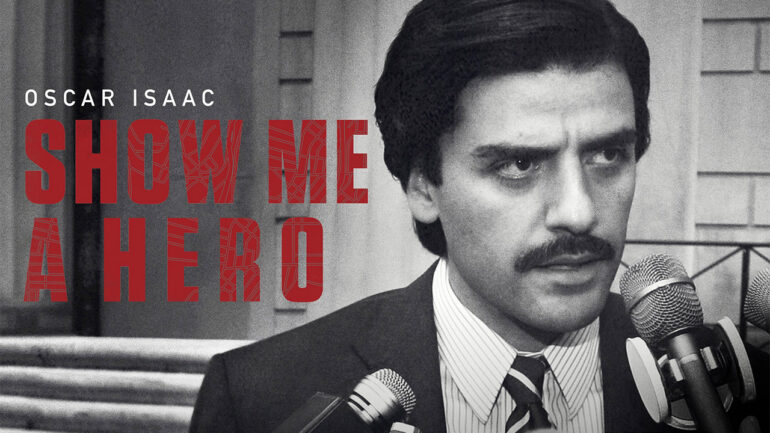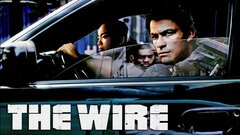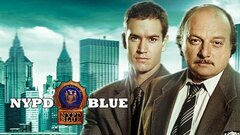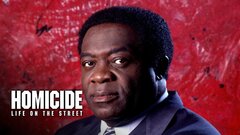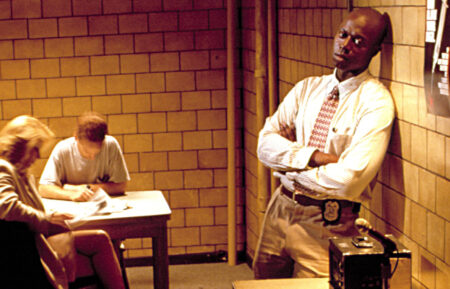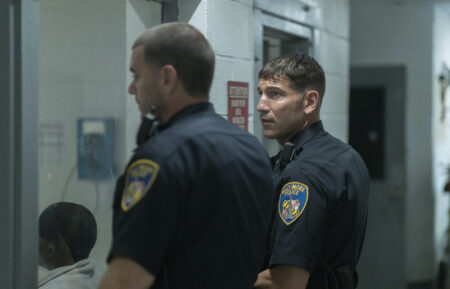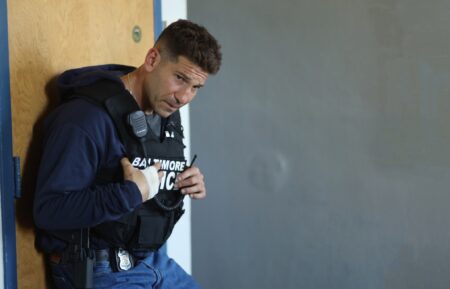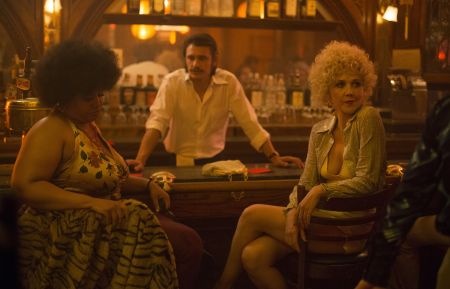Few could argue that throughout his professional career, writer David Simon failed to capture the stark tragedy of the violent, drug-infested streets of his native Baltimore. As a former investigative reporter for the city's largest daily newspaper and executive producer on some of the grittiest cop shows ever seen on television, Simon made it his mission to tell the stories of the forgotten combatants in the nation's long-fought war on drugs in the most gut-wrenching and realistic way possible.
His extended forays into the killing streets have led to writing two best-selling novels chronicling the futility of a drug war gone awry and the brutal despair felt by those on the frontlines, drawing heavily on interviews with both police and drug dealers. The novels were later used as templates for Simon's two highly-acclaimed television shows, "Homicide: Life on the Street" (NBC, 1993-99) and "The Wire" (HBO, 2002-08), both of which earned huge followings from the real-life cops and drug dealers that served as inspiration - a testament to Simon's unflinching drive to show life on the streets as honestly and humanly as possible.
Simon was born the youngest of three children and raised in Silver Spring, MD, a major suburb outside of Washington, D.C. His father was director of public relations and a speechwriter for B'nai B'rith, and his mother worked for the Negro Student Fund, a group that helped move students from underachieving schools into private education. The Simon household advocated reading books and newspapers, and enjoyed argument as sport. His father also knew a lot of reporters, many of whom were larger-than-life characters who sparked Simon's early interest in journalism.
He later attended the University of Maryland, taking five years to earn his degree, where he edited the school newspaper with future television writer and fellow collaborator David Mills. After graduation in 1983, The Baltimore Sun snatched him up and put Simon to work as crime beat reporter, immediately putting him face-to-face with the racial tensions that permeated all facets of Baltimore life - an eye-popping experience into an actuality with which he previously had little contact.
In 1988, after several years of covering Baltimore's increasingly dire murder problem, Simon decided to spend a year with a group of homicide detectives. His sojourn into the inner city hell of drug violence exposed him to a problem that seemed to worsen every day, as he documented the sometimes futile efforts of an overworked homicide unit. The stories he gathered made their first appearance in the Sun, then were compiled for Simon's first work of nonfiction, Homicide: A Year on the Killing Streets, released by Houghton Mifflin in 1991.
Film director and Baltimore native Barry Levinson optioned "Homicide" for $10,000 and turned the novel into the critically acclaimed one-hour drama, "Homicide: Life on the Street," a serialized cop show depicting the unglamorous and spiritually-draining world of homicide investigation while following the developing relationships and tensions between several detectives - a group including actors Daniel Baldwin, Richard Belzer, Ned Beatty and Andre Braugher.
Simon took a leave of absence from the Sun in 1993 to work with former police detective Edward Burns on his second work of nonfiction, The Corner: A Year in the Life of an Inner-City Neighborhood, an intimate look at the drug war told from the perspective of drug dealers, gang members and inner city residents caught in the crossfire. Simon and Burns spent a year standing on the same corner of Fayette and Monroe Streets talking to and befriending anyone they would come across. Suspicious at first, the neighborhood inhabitants eventually cottoned to their presence enough to tell them their depressing, yet sometimes, humorous stories. While Simon wrote The Corner, he continued working for the Sun, where his stories had developed from standard reporting into full-blown narratives that were more novelistic than journalistic.
In 1995, an editor accused him of glorifying criminals, angering Simon to the point of quitting the paper in disgust. He then went to work as a staff writer on "Homicide: Life on the Street" where showrunner Tom Fontana taught him the ins and outs of producing television - an education that proved to be both fortuitous and fruitful.
Over the course of seven years on the air, "Homicide" earned several distinguished awards, including two Emmys, two Writers Guild Awards and three Peabodys - only one of two shows to accomplish the latter feat - and remained at the top of critics' lists for one of the best shows on television. Simon also won a Humanitas Prize - along with co-writers T.J. English and Julie Martin - for the 1999 episode "Shades of Gray," about a white bus driver who hits a black pedestrian, sparking a neighborhood riot that results in another unnecessary death. Despite continual kudos and accolades, "Homicide" suffered low ratings and was eventually canceled.
As the show gave its final bows, Simon negotiated with HBO to adapt "The Corner" into a six-part miniseries. Focusing on a single black family, "The Corner" (2000) depicted the changes they experience over a couple decades amidst an increasingly violent drug market engulfing the streets of Baltimore. Gritty and realistic to the point of being depressing, "The Corner" nonetheless pleased critics and earned Emmy Awards for Directing (Charles S. Dutton), Writing (Simon and David Mills) and Outstanding Miniseries.
Simon proved to HBO that he could make critically acclaimed programming on the cheap, prompting the cable network to give him a shot at creating a one-hour series. He was interested in continuing his focus on the drug war and created "The Wire" as his means of conveying the idea that the institutions employed to both fight and perpetuate crime have been harmful to the people working within them. "The Wire" followed a group of police detectives (Dominic West, Sonja Sohn and Lance Reddick) as they probe a drug-selling racket in a housing project run by an elusive kingpin (Larry Gilliard, Jr.).
Unlike most shows which wrapped up storylines with virtually every episode, "The Wire" unfolded a single story over the course of an entire season, earning the show comparisons to being novel-like - both in narrative structure and complexity of theme. Season two shifted focus from the projects to Baltimore's famed docks to depict the struggle of longshoremen fighting to survive an ever-shifting economy. In the third season, "The Wire" examined Baltimore's political battles in confronting reform and the problems facing a post-industrial landscape.
Despite huge helpings of critical adulation - some even called it the best show on television ever - "The Wire" earned only one Emmy nomination during its first three seasons. Meanwhile, the show suffered the loss of co-creator and executive producer Robert F. Colesberry, prior to a short hiatus for the 2005-06 season. Many were unsure whether or not "The Wire" would return - poor ratings despite being on a network that traditionally eschewed the Nielson's raised doubts over whether or not a fourth go-round was forthcoming. The show did eventually return in 2006 for a fourth season, which focused on a group of high school students traversing the drug-ravaged streets while struggling to gain a foothold in life despite a poor educational system.
"The Wire" was then tentatively picked-up for its fifth and final season, though no script order commitments were initially made.
Simon started to gear up for life outside "The Wire" when he signed on to write HBO's miniseries "Generation Kill" (lensed 2006), an adaptation of Rolling Stone editor Evan Wright's chronicle of his experiences with the Marine's First Reconnaissance Battalion on a 16-day mission from Kuwait to Iraq.









